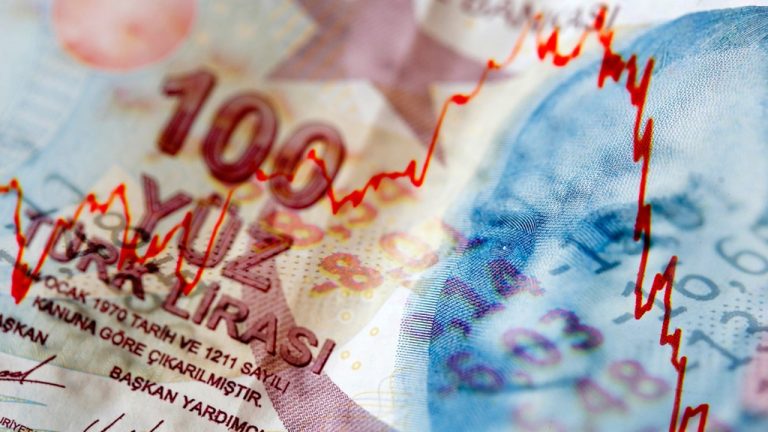
On Jan. 1 Turkey ended its two-year-old foreign exchange (FX)—protected deposit program in what is seen as another step towards a return to orthodoxy. Treasury and Finance Minister, Mehmet Simsek also signaled the start of what he called a “permanent improvement in the current account.”
Turkey’s Policy U-Turn
Turkey’s Treasury and Finance Minister, Mehmet Simsek, recently disclosed that the country will end its foreign exchange (FX)-protected deposit program, also known as KKM, in 2024. This move is the latest in a series of policy u-turns that Turkey has made in the last couple of months.
Programımızın olumlu sonuçlarını yeni yılda da almaya devam edeceğiz.
2024 yılı;
•Yıllık enflasyonda düşüşün başladığı,
•Rezerv yeterliliğinin daha da arttığı,
•Kur korumalı sistemin sonlandığı,
•Cari açıkta kalıcı iyileşmenin başladığı,
•Bütçe disiplininin tesis…— Mehmet Simsek (@memetsimsek) December 31, 2023
Following his re-election in May 2023, President Recep Tayyip Erdoğan immediately signaled the country’s return to orthodoxy by appointing Simsek as the Finance Ministry head. The central bank later all but confirmed the major policy shift by sharply raising interest rates.
Before his re-election, President Erdoğan and his government resisted devaluing the lira or raising interest rates. Instead, the government pursued several policy measures including the KKM program whose objective was to bolster the lira and halt the apparent dollarization of bank deposits. Under the program, Turkish residents who maintained their savings in local currency were guaranteed returns that compensated for any exchange rate-related losses.
However, in his Dec. 31 post on X, Simsek, one of the former Wall Street bankers in Erdogan’s government, said:
“2024 will be a year [where] annual inflation starts to decline, reserve adequacy increases further, the foreign exchange protected system ends, a permanent improvement in the current account begins, and fiscal discipline is established.”
Simsek confirmed Turkey’s exit from the KKM program just a few months after he suggested that this process could be achieved without offering incentives. According to a state-run news agency, banks were expected to stop offering FX-protected lira deposit accounts for savings on Jan. 1.
What are your thoughts on this story? Let us know what you think in the comments section below.






